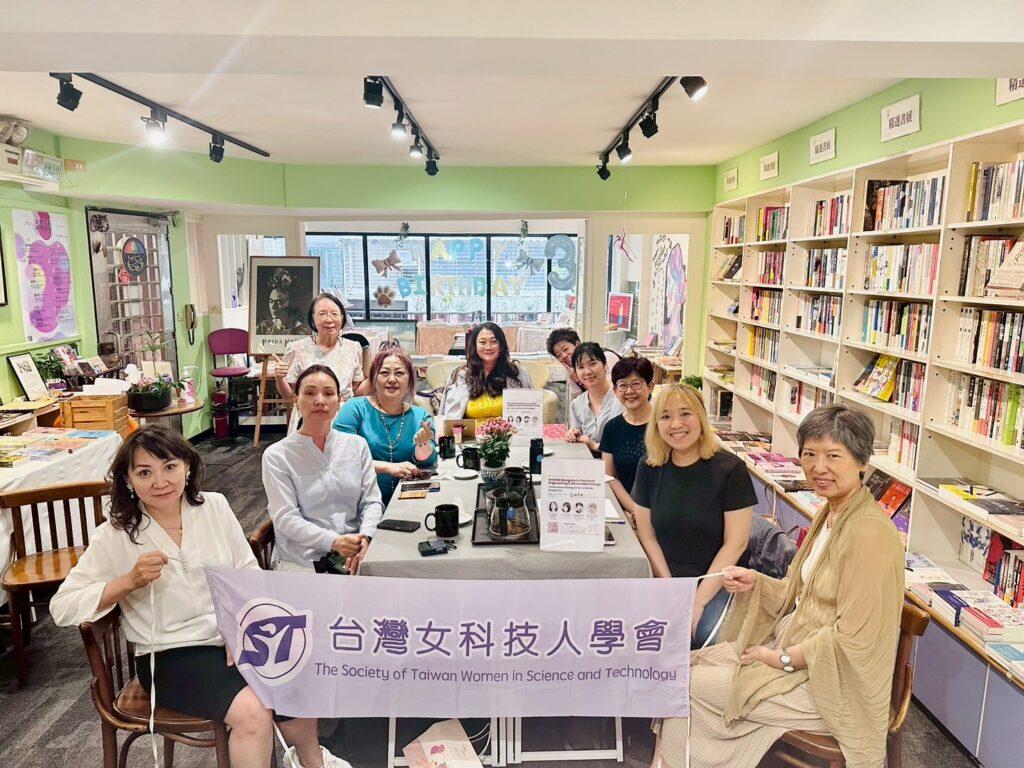Time :15:00 ~ 17:00 June 19th, 2025
Venue:女書店Fembooks
Organizer:TWiST
Co-Organizer: INWES, CIE-WEN
Supervisor:國科會 (NSTC)
Dr. Ariunbolor PURVEE, president of the Women in STEM, Mongolia came to Taiwan to participate in the 2025 IEEE IAS Annual Meeting. TWiST specially arranged a dialog to share the gender status and development in Mongolia’s engineering field and the influence of women’s power.
Chaired by :
Shun-Lien Sung | TWIST Supervisor, INWES VP Conference
Panelists:
Dr. Chiang | CIE-WEN, Vice Chairperson
Ms. Huang, Shu-Der | 綠主張綠電合作社 Green Engergy Co-Op Board member
Dr. Ariunbolor PURVEE | WSTEM MN President
Summary of the panel
On June 19th, 2025, TWiST hosted a meetings bringing together representatives from Mongolia WSTEM and Taiwan NGOs to discuss key topics in energy development, academic research, and gender diversity within academia and NGOs. These discussions fostered international collaboration, knowledge sharing, and strategic planning to address technical, environmental, and social challenges.
Current Development and Challenges of Energy Sector in Mongolia
The first section featured Ariunbolor Purvee, an associate professor at the Mongolian University of Science and Technology and a full professor at the German-Mongolian University of Science and Technology. Dr. Purvee provided an overview of Mongolia’s vast geographical and demographic context, emphasizing its large land area—about 43 times the size of Taiwan—with a relatively small population of approximately 3.5 million people. Mongolia’s ethnic diversity, use of the Russian script, and religious plurality were also noted. The country’s higher education system was compared to Taiwan’s, with similar literacy rates and ongoing efforts to improve university quality. Mongolia’s harsh climate, with winter temperatures dropping to -30°C, contrasts sharply with the milder conditions experienced in Taiwan.
A central focus of this discussion was Mongolia’s energy sector, which remains heavily dependent on coal-fired power plants. These plants provide both electricity and district heating, particularly crucial during the bitter winters in Ulaanbaatar. Despite Mongolia’s abundant coal resources, renewable energy sources account for only about 10% of total consumption. The challenges of long-distance electricity transmission, especially to rural areas, were highlighted due to the high costs and maintenance difficulties. Technical differences in electricity standards between Mongolia, and Taiwan—such as voltage and frequency variations—affect equipment compatibility and stability. The heavy reliance on coal contributes to significant environmental pollution and health issues in urban areas. Barriers to expanding renewable energy include political and economic factors, such as vested interests maintaining the existing infrastructure. The discussion stressed the importance of electrical safety, professionalism, and energy security, noting that countries with strong energy control possess considerable national power. Dr. Purvee further urged the participants to promote energy efficiency by disconnecting unnecessary electrical devices to ease the strain on Mongolia’s energy system. Action items were set, including detailed reporting on energy transmission challenges, coordinating pilot renewable projects, and launching energy efficiency campaigns targeting urban and rural communities.
For further information, please visit the TWIST’s page.


